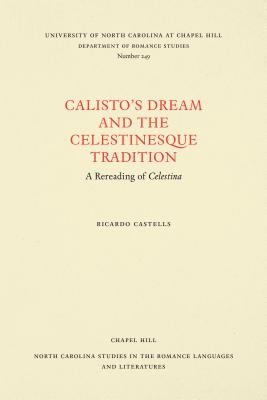
- We will send in 10–14 business days.
- Author: Richard Castells
- Publisher: University of North Carolina at Chapel Hill Department of Romance Studies
- ISBN-10: 080789253X
- ISBN-13: 9780807892534
- Format: 16.2 x 23.9 x 1.1 cm, minkšti viršeliai
- Language: English
- SAVE -10% with code: EXTRA
Reviews
Description
Fernando de Rojas's Celestina, written in the late fifteenth century, opens with an enigmatic conversation between Calisto and Melibea, which has puzzled scholars trying to resolve the apparent contradictions in the work as a whole. Ricardo Castells supports the idea that the scene represents Calisto's dream about his beloved Melibea. In this study, Castells examines later Celestinesque works as a lens through which we might better understand Celestina. Castells focuses on Calisto's creative use of borrowed text and speech, and contends that Melibea demonstrates a surprisingly strong and consistent personality. He argues that Celestina's role is somewhat diminished in Rojas's continuation of the text as a result of this greater independence in Melibea's character.
EXTRA 10 % discount with code: EXTRA
The promotion ends in 22d.17:51:13
The discount code is valid when purchasing from 10 €. Discounts do not stack.
- Author: Richard Castells
- Publisher: University of North Carolina at Chapel Hill Department of Romance Studies
- ISBN-10: 080789253X
- ISBN-13: 9780807892534
- Format: 16.2 x 23.9 x 1.1 cm, minkšti viršeliai
- Language: English English
Fernando de Rojas's Celestina, written in the late fifteenth century, opens with an enigmatic conversation between Calisto and Melibea, which has puzzled scholars trying to resolve the apparent contradictions in the work as a whole. Ricardo Castells supports the idea that the scene represents Calisto's dream about his beloved Melibea. In this study, Castells examines later Celestinesque works as a lens through which we might better understand Celestina. Castells focuses on Calisto's creative use of borrowed text and speech, and contends that Melibea demonstrates a surprisingly strong and consistent personality. He argues that Celestina's role is somewhat diminished in Rojas's continuation of the text as a result of this greater independence in Melibea's character.


Reviews